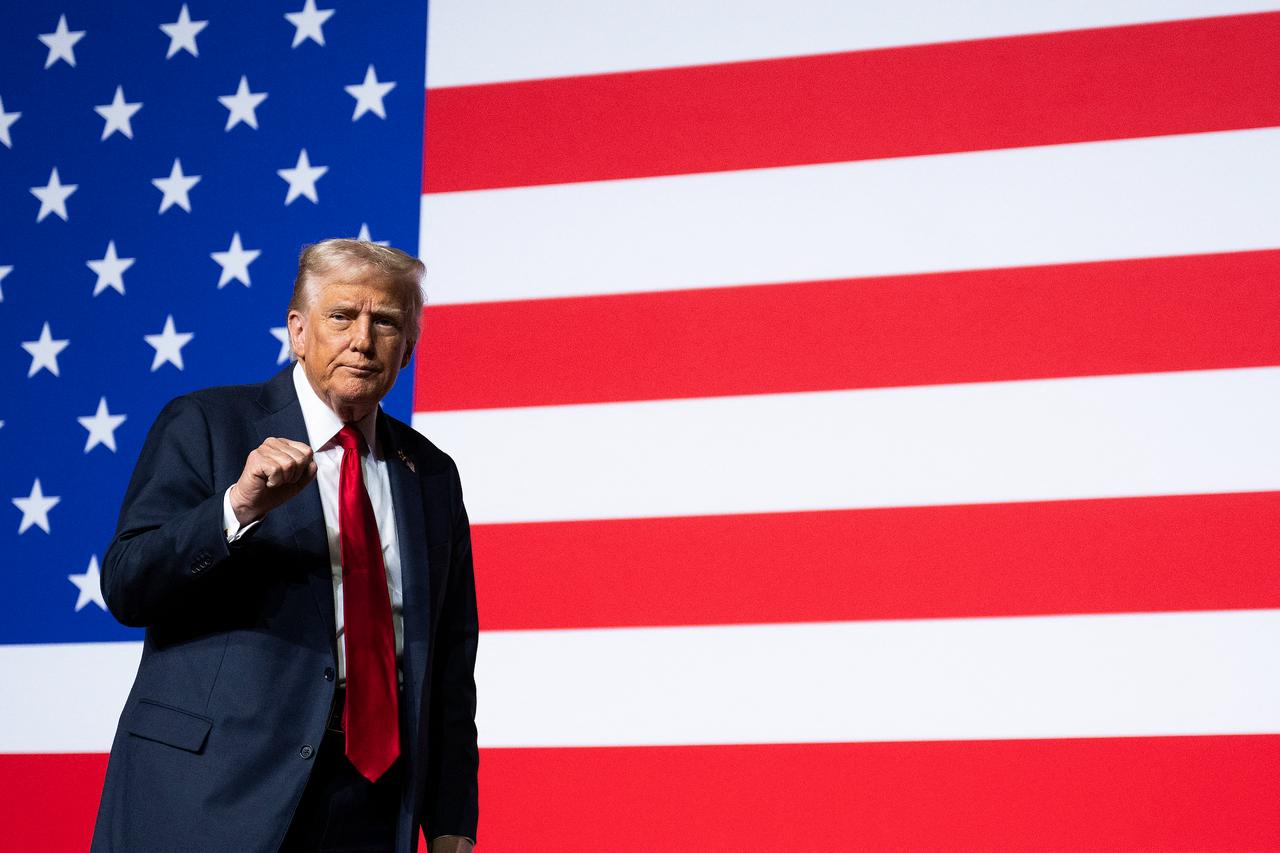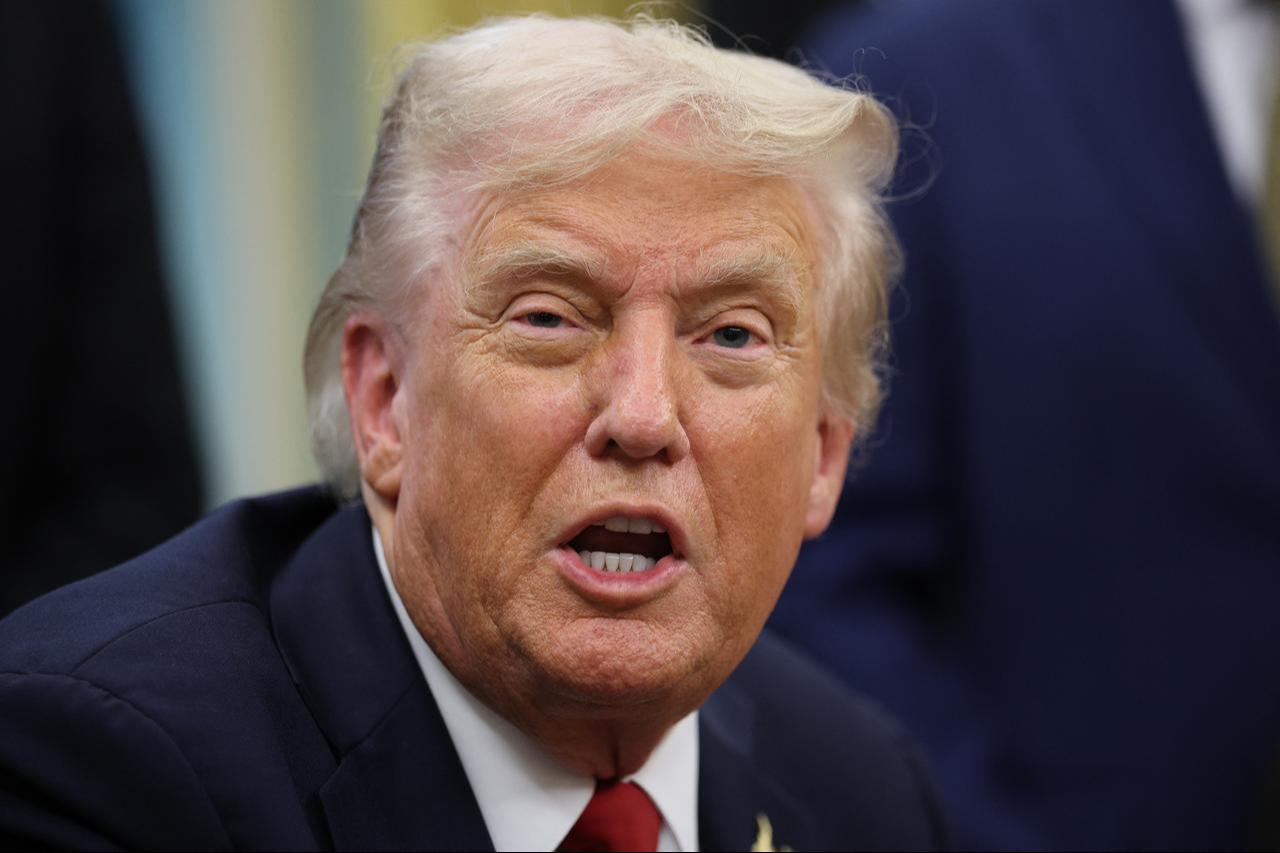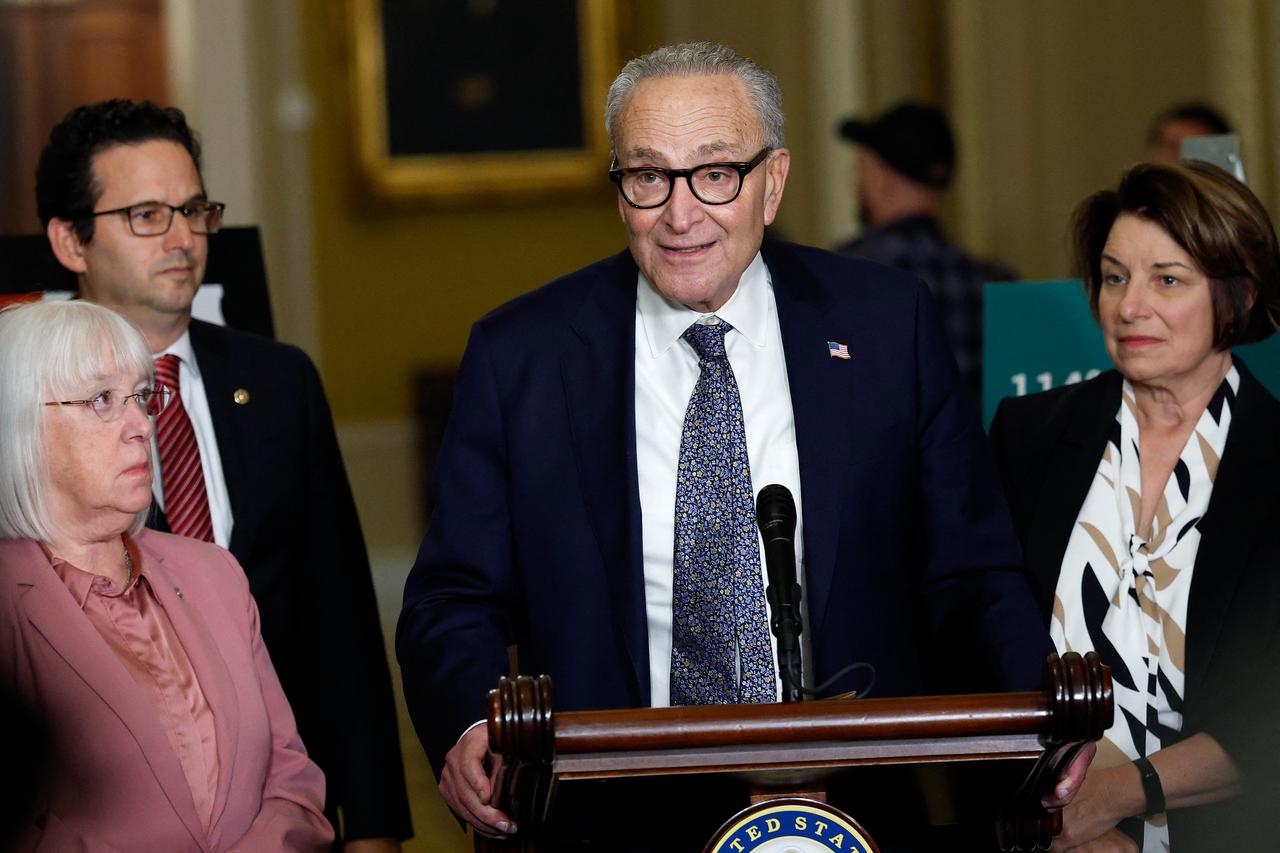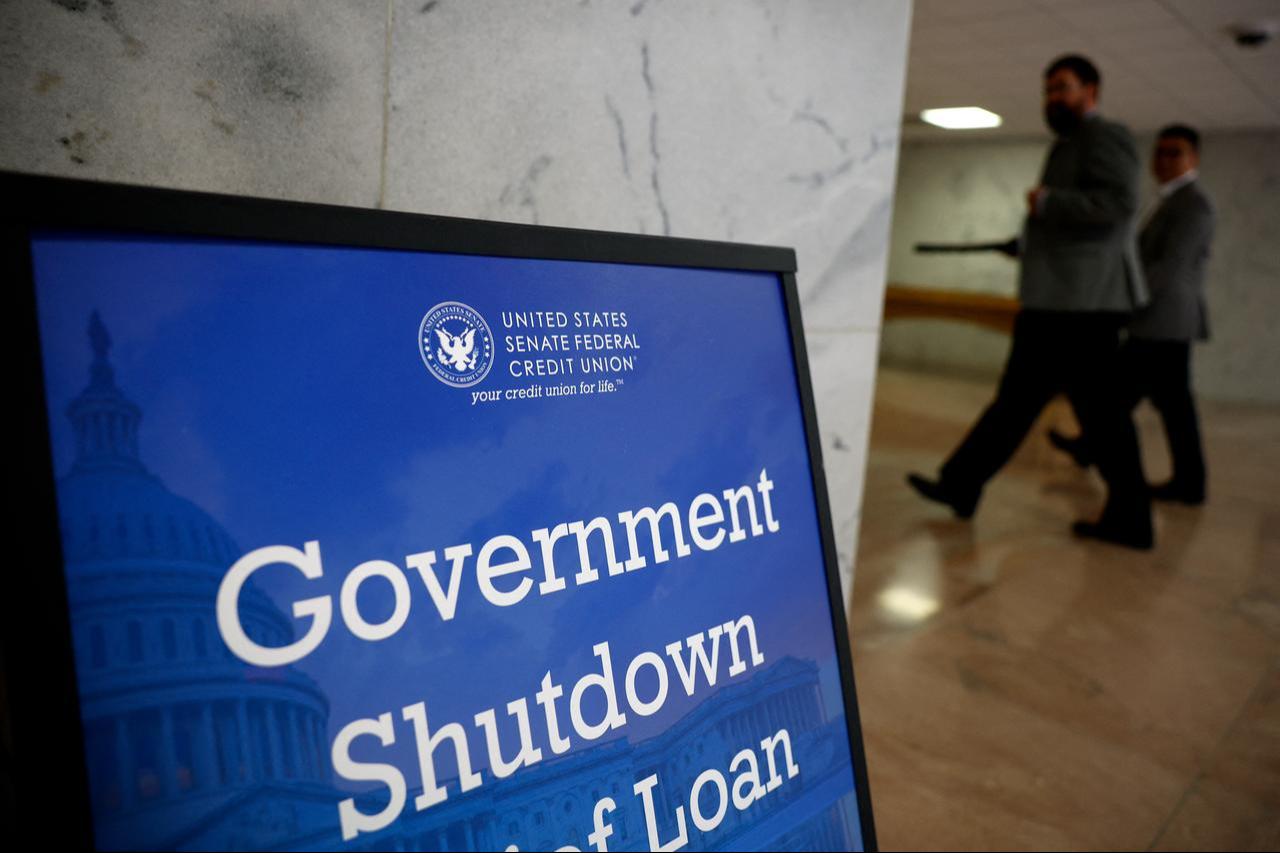
U.S. President Donald Trump said a government shutdown is "probably likely" as the midnight Tuesday deadline approaches, with negotiations over a federal funding package stalled amid partisan disagreements over health care policy.
"Nothing is inevitable, but I would say it's probably likely because (Democrats) want to give healthcare to illegal immigrants, which would destroy healthcare for everybody else," Trump told reporters in the Oval Office.
Democrats are pushing for legislation to extend current subsidies under the Affordable Care Act, which aims to make coverage more affordable but does not include undocumented immigrants. They are also demanding a reversal of Medicaid cuts.
Republicans are demanding a "clean" continuing resolution, devoid of any changes to existing spending, and are unwilling to compromise on healthcare provisions.
Trump warned that Republicans do not want to shut down the government, but said a shutdown would allow his administration to take actions that would affect Democrats.
"We can do things during the shutdown that are irreversible, that are bad for them and irreversible by them, like cutting vast numbers of people out, cutting things that they like, cutting programs that they like," he said.
Trump also threatened mass layoffs that he said would disproportionately affect Democrats.
"Well, the Democrats want to shut it down. So when you shut it down, you have to do layoffs, so we'd be laying off a lot of people that are going to be very affected, and the Democrats, they're going to be Democrats," he told reporters.
"We can get rid of a lot of things that we didn't want, and they'd be Democrat things," he added.
Trump warned that the Democrats are taking "a risk" by allowing a shutdown.

Senate Minority Leader Charles Schumer said Republicans are carelessly steering the country toward a shutdown and criticized Trump's remarks.
"I just heard something that Trump said, here's what he said, 'We can do things during the shutdown that are irreversible and bad for them and irreversible, like cutting vast numbers of people out.' Well, there it is. Trump admitted himself that he is using Americans as political pawns. He is admitting that he is doing the firing of people," Schumer said at the Capitol.
Democrats do not want a shutdown, Schumer said, adding that his party stands ready to work with Republicans to find a bipartisan compromise.
"The ball's in their court," he said.
Schumer faulted House of Representatives Speaker Mike Johnson for triggering the shutdown by keeping the House out of session until after the funding deadline had passed.
"If you want an indication of how serious Republicans are about keeping the government open. Who wants the shutdown? There's no better proof than the fact that Speaker Johnson sent everybody home this week, ensuring a shutdown no matter what the Senate did," he said.
"Republicans have until midnight to cut the garbage and get serious with us about solving the health care crisis," Schumer said.

Fiscal year 2025 ends Tuesday when the clock strikes midnight, but Republicans and Democrats have not reached an agreement on the federal government's budget. Leaders of both parties in Congress met with Trump on Monday to discuss the issues, but neither side is willing to compromise.
The House of Representatives passed a bill Sept. 19 that would have funded the government at existing levels through Nov. 21, but it stalled in the Senate, where Republicans lack the number of seats to clear a 60-vote procedural hurdle to approve legislation.
Under U.S. law, if Congress cannot approve the budget for the fiscal year that begins Oct. 1 and ends Sept. 30 on time, the period until approval must be covered with temporary budgets.
During periods when the budget cannot be approved, the federal government loses spending authority and must suspend all activities except essential services.
During this process, public employees in non-essential services are placed on mandatory leave, while public employees such as the U.S. military, intelligence agencies, doctors and nurses working in public hospitals, and security personnel at airports and prisons continue their duties.
These workers in the "essential personnel" category generally do not receive their salaries during shutdown periods until Congress passes a new budget.
Unlike past shutdowns, Trump has threatened to make additional layoffs if the government shutters after firing thousands of federal employees earlier in the year.

The Congressional Budget Office estimated that approximately 750,000 workers could be placed on unpaid leave each day if the federal government shuts down due to lack of funding.
In its analysis of the potential effects of a government shutdown, the CBO stated that the total daily cost of retroactive pay to these workers would be approximately $400 million.
The analysis noted that the number of furloughed employees could vary daily depending on the duration of the shutdown and whether some agencies recall initially furloughed employees.
Military personnel would be required to continue working during the shutdown, the analysis stated, but like other federal employees, they would receive their salaries only after a budget is passed.
The analysis noted that congressional members' salaries are constitutionally mandated spending and therefore they would continue to receive their salaries during a government shutdown.